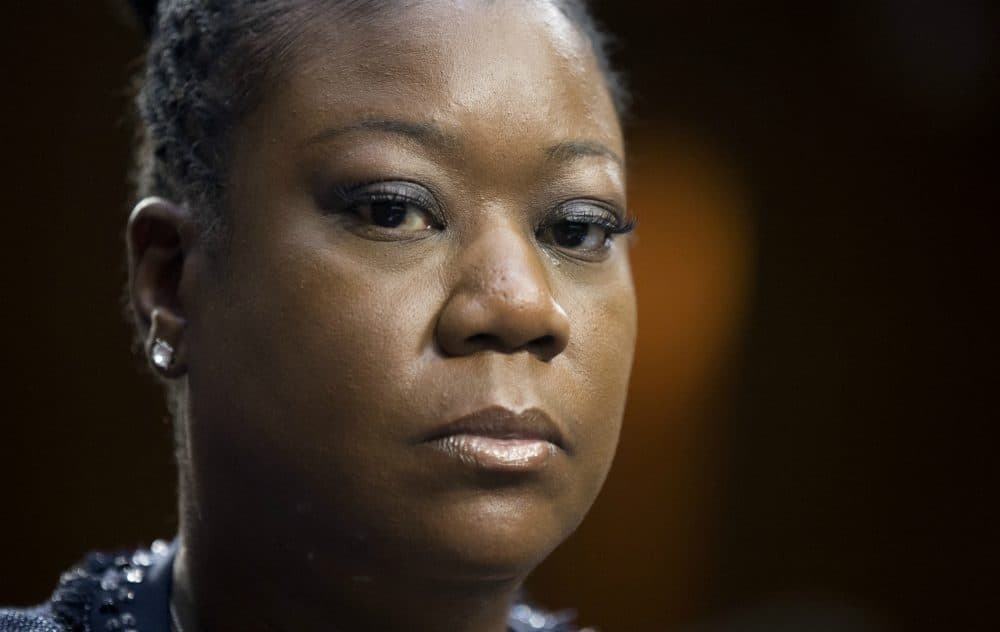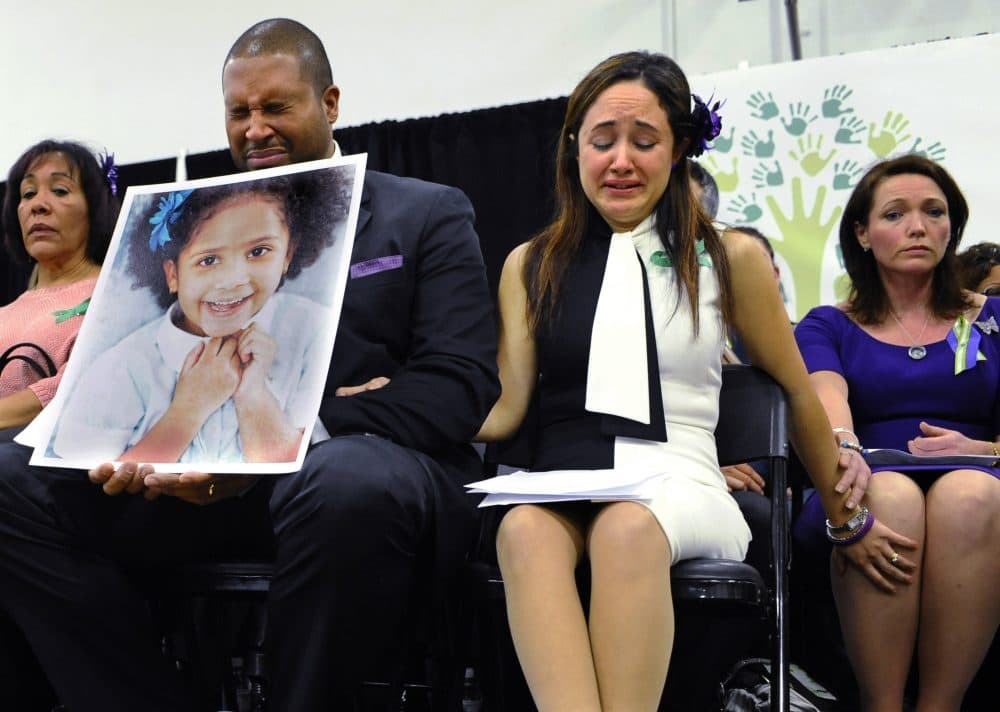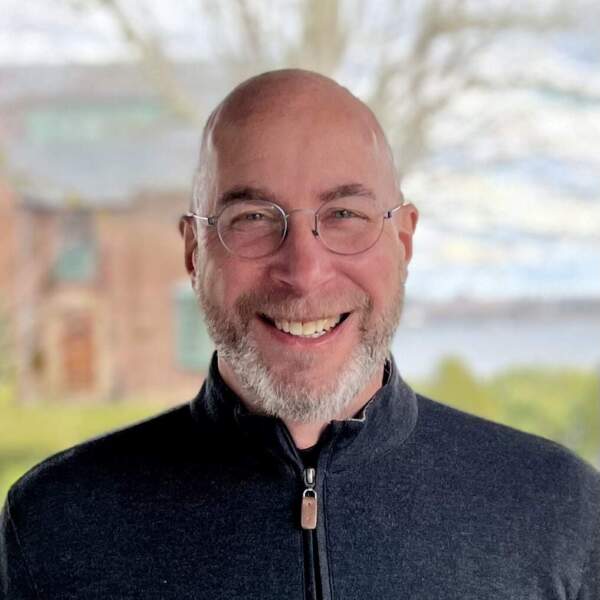Advertisement
commentary
To Talk About Guns, Let’s Start With A Grieving Mother’s Silence

I knock and nervously enter a small room in the emergency department. Mrs. M sits quietly on a chair next to the stretcher, her winter coat buttoned to the neck, clutching her handbag.
Her son, a young boy, has just died in the children’s hospital next door. We heard how Mrs. M fell apart when she heard the news. She screamed and fought off everyone who tried to console her, even her cousin. She’s my patient because the family felt she needed something to help calm her.
Now she appears exhausted and empty. I introduce myself. She tugs at the wool cap sitting over her ears. I offer my hand. She stares at it and nods.
“I’m sorry,” I say. “I can’t tell you how sorry I am.”
I pull up a chair and lean forward. I wait. I have tissues and time. I prepare for torrents of tears, a river of rage. But she says nothing.
Her cousin motions that we should step into the corridor. She’s dressed like Mrs. M, bundled up against the chill. She fills in the details.
A knock on the front door. Then gunshots. The young boy wasn’t the intended target, but he became one, the cousin said. Gang-related, the police suspect. A mistake. The wrong house, the wrong victim. An alarming statement that implies there’s such a thing as the right house and the right victim.

I sense Mrs. M heard what her cousin has said. When we return, Mrs. M says, “Why did I open the door?”
What can I say to Mrs. M? There are a quarter-million words in the English language and yet I can’t find one that feels appropriate. After years of practice as an emergency physician, rare are the moments when any gesture of solace rings hollow.
“Why wouldn’t you open the door,” I wanted to say. But when I consider her neighborhood, with its poverty, unemployment, substance abuse and violence, there are many reasons why Mrs. M wouldn’t open the door. Except, isn’t that what neighbors do?
“Why?’ Mrs. M. argues silently to herself.
My baby my baby my baby my baby my baby...
These words dance lightly on her lips. She chokes up, fights back tears, and retreats into an impenetrable silence.
Advertisement
This happened years ago, and yet the memory and that feeling of futility return whenever there’s a Littleton or a Newtown or a Parkland. Whenever mass numbers of victims produce mass numbers of Mrs. Ms. The idea of such grief being scalable is destabilizing to me. The human heart shouldn’t have the capacity to accept such a reality and still be considered healthy.
Once again, we hear statistics, rhetoric, calls for action from voices on both sides of the divide, and I worry that people are so entrenched in their positions and beliefs that nobody is listening.
The discourse on gun control should begin with silence, the type found in a small ER room with a mother who just lost her son. It’s a silence that cuts through you. A relentless and purifying grief that leaves you acutely aware of all that’s precious in your life.
I worry that people are so entrenched in their positions and beliefs that nobody is listening.
My son is a young boy when I care for Mrs. M. The illusion that I can protect him is still operating smoothly. I remember the urge to rush home, rustle him from sleep and crush him with a hug. I know I can’t leave my shift. I can’t even leave Mrs. M’s side. Words of comfort dissolve on my tongue. I’m powerless to return her son. My presence is all I can offer even when I know it’s not enough.
My baby my baby my baby my baby my baby...
Mrs. M has another child, a younger son. She had protected them both well-enough until this evening, after supper, when there was a knock on the door.
I ask Mrs. M if I can get her anything. Maybe a glass of water? She’s not thirsty. We bring water anyway because it makes us feel less inadequate.
Sometimes patients will ask my opinion about guns. It’s a charged question like little else I’m asked in my practice. I know many people who own guns and who use guns with utmost caution and prudence. I recognize that many if not most gun owners in the United States are equally responsible. That said, as a practicing emergency physician for over 20 years I’ve seen the immediate and long-term havoc from firearms on patients and their families. I usually answer the question like this: I don’t have a problem with guns, but I have a serious issue with bullets.
I’ve heard it said that to get people to think you must first get them to feel. I can’t help believing that most individuals, regardless of their fervent positions on guns and gun control, would be similarly affected by Mrs. M’s silence. It forces the question: In spite of our disagreements, can we at least find common ground in the love we have for our children? If we can agree on that, can we leverage that shared humanity into more respectful and productive conversations?

For thousands of years we’ve sought to understand ourselves and others through the stories we tell one another and that can’t stop now. When sharing stories, we must seek out and be receptive to all stories, especially those from outside the echo chamber of our belief system.
Will stories alone change minds? Maybe. Maybe not. But I believe stories can open them.
My baby my baby my baby my baby my baby
Those words hang in the air, pull me into a cavernous space that’s connected to every parent’s nightmare. When sitting with a mother’s broken heart, you’ll do anything for the power to fix what you know is beyond repair. When we talk about gun control, we should begin with a shared silence and work from there. And what should we talk about? One less Mrs. M would count as a precious first step.
Editor's note: Some details have been changed to protect privacy.
